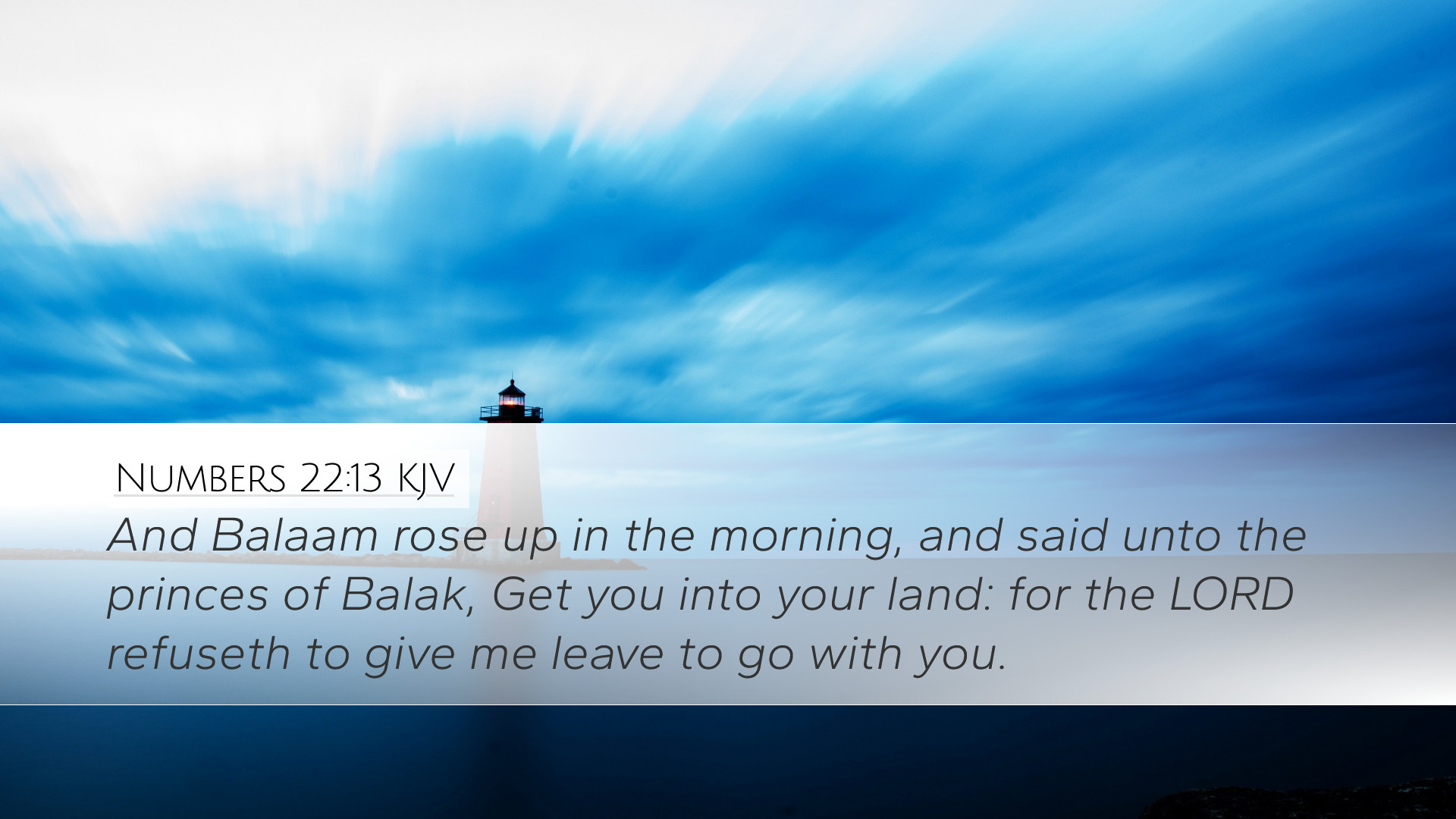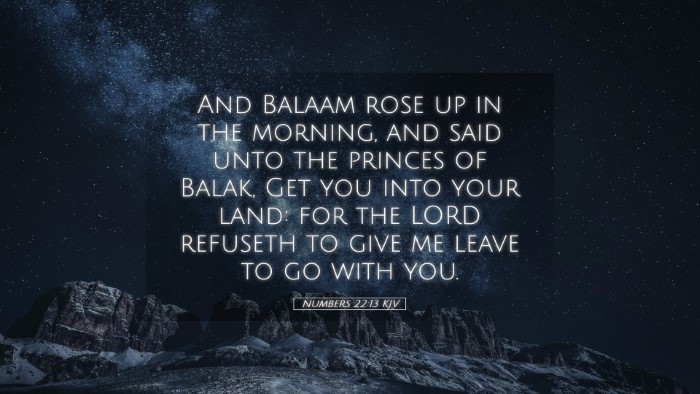Commentary on Numbers 22:13
Introduction
Numbers 22:13 provides a critical juncture in the narrative of Balaam, a figure whose storied journey raises profound questions concerning obedience, divine will, and the consequences of human desire. This commentary synthesizes insights from esteemed public domain commentators such as Matthew Henry, Albert Barnes, and Adam Clarke, aiming to enrich the understanding of pastors, students, theologians, and Bible scholars.
Contextual Background
This verse occurs in a pivotal section of the Book of Numbers, where the Israelites are on the cusp of entering the Promised Land. The Moabite King Balak, fearing the advancing Israelites, sends emissaries to summon the prophet Balaam to curse the people of Israel. The narrative encapsulates themes of prophetic authority, divine interaction, and spiritual discernment.
Verse Analysis
Numbers 22:13 (KJV): "And Balaam rose up in the morning, and said unto the princes of Balak, Get you into your land: for the LORD refuseth to give me leave to go with you."
Balaam's Response
Matthew Henry emphasizes Balaam’s immediate obedience to God's command, reflecting a moment of clarity where he recognizes the divine prohibition against cursing Israel. This obedience, however, is juxtaposed against his later actions, inviting scholars to explore human inconsistency in adherence to God’s will.
The Role of Divine Revelation
Albert Barnes highlights the significance of God’s direct communication to Balaam. This demonstrates that God is actively involved in the affairs of humankind, ensuring that His purposes prevail. The contrast between Balaam's initial response and his subsequent behavior underscores the complexity of human nature in the face of divine instruction.
Understanding 'The LORD Refuseth'
Adam Clarke elaborates on the phrase "the LORD refuseth to give me leave." This refusal signifies God's unwavering stance against the proposal of Balak, and Clarke posits that it represents a broader principle: God does not condone actions that contradict His promises to His people.
Theological Implications
This verse prompts theological reflection on several key topics:
- Prophecy and Free Will: Balaam’s initial compliance raises questions of prophetic integrity and the intersection of divine sovereignty with human agency.
- The Nature of God's Guidance: Balaam's experience illustrates how God can guide individuals even within a narrative laden with ambiguity and ethical dilemmas.
- Impact of Divine Displeasure: This passage serves as a cautionary tale about pursuing personal desires that may run contrary to God's established will.
Literary Considerations
The narrative structure of Numbers is vital for understanding this passage. Matthew Henry points out that it employs contrast effectively: Balaam’s encounters with the divine versus his interactions with Balak serve to highlight the tension between divine will and human ambition.
Application for Today's Reader
For contemporary readers, particularly pastors and theologians, the insights gleaned from Numbers 22:13 can be multifaceted:
- Obedience to God: It challenges believers to reflect on their own responses to God's guidance in their lives.
- Discernment in Leadership: Leaders are reminded of the importance of discerning the will of God in their decisions, echoing Balaam’s initial resolve.
- Warning Against Compromise: The narrative invites Christians to consider the dangers of allowing external pressures to sway them away from God’s calling.
Conclusion
Numbers 22:13 serves as a powerful reminder of the complexities of faithfulness in the face of worldly demands. The commentaries by Henry, Barnes, and Clarke converge in their understanding that the tension present in Balaam's experience is emblematic of a broader human struggle. As believers navigate their own journeys of faith, this text invites continual reflection on the nature of divine guidance, the importance of obedience, and the call to remain steadfast amidst external influences.


